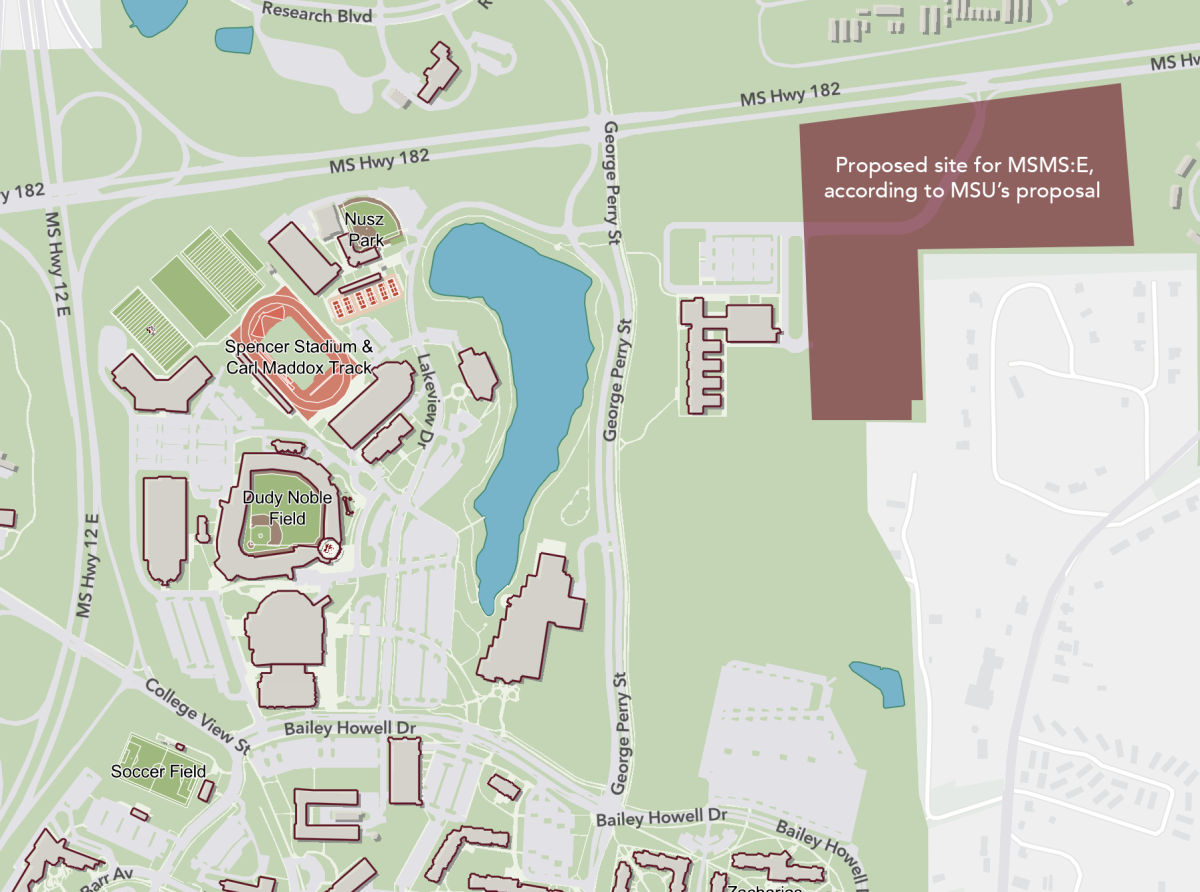Oktibbeha County houses four courts and is creating a new county court set to open next year. This November, Starkville citizens will vote for County, Circuit, Chancery and appellate court judges.
The lower courts
The Municipal Court handles cases that occur within Starkville city limits. The city’s police department issues citations, which typically begin the court’s process, including traffic tickets, city ordinance violations and misdemeanors.
However, law enforcement officers do not witness every crime citizens commit. Circuit Court Clerk Tony Rook explained how victims report cases.
“If an individual is a victim of a crime that is not witnessed by law enforcement, they have the authority to report to Justice Court or Municipal Court and talk to the prosecutor and/or the judge,” Rook said. “They can sign an affidavit, and the judge could find probable cause that an individual may have committed a crime. And the judge has the authority to issue an arrest warrant for the individual.”
The Board of Aldermen votes for the Municipal Court judge.
The preliminary hearings for felony cases, like murder or robberies, also occur within the Municipal Court. Preliminary hearings determine whether there is enough probable cause to bring in the Starkville grand jury. However, this court can only sentence offenders with up to six months in jail, and Rook said most felonies eventually appear in Circuit Court.
Similarly, the Oktibbeha County Justice Court judge may only sentence offenders to up to six months in jail. Unlike Municipal Court, the Justice Court hears cases from inside Oktibbeha County’s jurisdiction but outside of Starkville’s city limits. People charged with crimes on Mississippi State University’s campus must appear in Justice Court for their hearings.
The Oktibbeha County Sheriff’s Department, the MSU Police Department, the Mississippi Highway Patrol and Mississippi Wildlife, Fisheries and Parks have legal power over the county. The civil jurisdiction of the Justice Court goes up to $3,500. Citizens vote for judges in partisan elections, and the judges have four-year terms.
“So, Justice Court and Municipal Court are similar in many ways; they have, essentially, the same levels of jurisdiction,” Circuit Court Clerk Rook said.
The “middle man”
Oktibbeha County grew in population from the 2010 to 2021 census, so it is required to form a County Court to hear both misdemeanor and felony cases. The County Court has a civil jurisdiction of $3,500 to $200,000 and will begin hearing cases in early 2023.
If the Municipal or Justice courts charge an individual, the person may appeal the case in County Court. Additionally, youth court will fall under the new County Court.
Citizens will vote for one county judge this November.
The trial courts
Oktibbeha County Circuit Court is in the 16th district, which has three judges who travel to each county to hear cases. If the Justice or Municipal Courts cannot hear a felony case, it is transferred to the Circuit Court.
The Circuit Court handles civil lawsuits and felony criminal prosecution cases using a 12-member jury and a judge. Common felony cases include murder, robbery, rape, burglary, aggravated assault and drug offenses. These cases require more than a six-month jail sentence or fines greater than $3,500.
“Circuit Court has the most jurisdiction over any court in the county,” Rook said.
Chancery Court deals with family court and related matters. Divorces, custody agreements, land divisions and adoptions are heard within the court. Unlike Circuit Court cases, Chancery cases are not transferred from Municipal or Justice courts; the hearings originate in the Chancery Court.
“Chances are, students would not have much involvement with Chancery Court,” Rook said.
Oktibbeha County is in the Chancery Court’s 14th district, which also has three judges who travel from county to county. Additionally, juries are not present in a typical chancery trial, but individuals may request a jury, according to state law.
After January, the Chancery Court will no longer handle youth court because the new County Court will take over.
Citizens elect non-partisan Chancery and Circuit Court judges to serve four-year terms.
The high courts
Outside of Oktibbeha County, the Court of Appeals and Mississippi Supreme Court are housed in Jackson, Mississippi, and they are the highest courts in the state. The Supreme Court can only hear cases in Jackson, but the appellate court can sit in different locations around the state.
Created by Mississippi’s legislature in 1993, the Court of Appeals is an intermediate appellate court. The legislature formed the court because the Mississippi Supreme Court had a backlog of appeals cases and needed alleviation. The Mississippi Supreme Court refers some appeals cases to the appellate court.
“All appeals are decided within 270 days of the filing of the final briefs in the case,” said Beverly Kraft, the public information officer for the Administrative Office of Courts.
The Court of Appeals has 10 judges presiding, and three judges hear one case. Kraft said 55% of cases in the Supreme Court were decided by the appellate court in 2021, while the Supreme Court decided 45% of cases.
“The more complex cases go to the Supreme Court,” Kraft said.
There are eight instances in which the Supreme Court must hear a case, including death penalty cases, challenges of the Constitution and bond issues; otherwise, cases may appear in appellate court.
The Mississippi Supreme Court may appeal cases from the Circuit, Chancery, County and appellate courts. Citizens elect nine justices from three districts to serve the Supreme Court for eight-year terms.
Both the Supreme and appellate courts have staggered elections to prevent a complete turnover in leadership in one election.
Voting
Although this year’s election is smaller, Rook said it is important to vote for experienced judges who follow the law and have high levels of integrity.
Agreeing with Rook, Chancery Court Clerk Sharon Livingston urged voters to know who their leaders are.
“It’s very important for (voters) to go out and at least meet people who are in office,” Livingston said.
Oktibbeha County's Circuit court encapsulates a broad range of criminal and civil cases and works with the lower courts





















